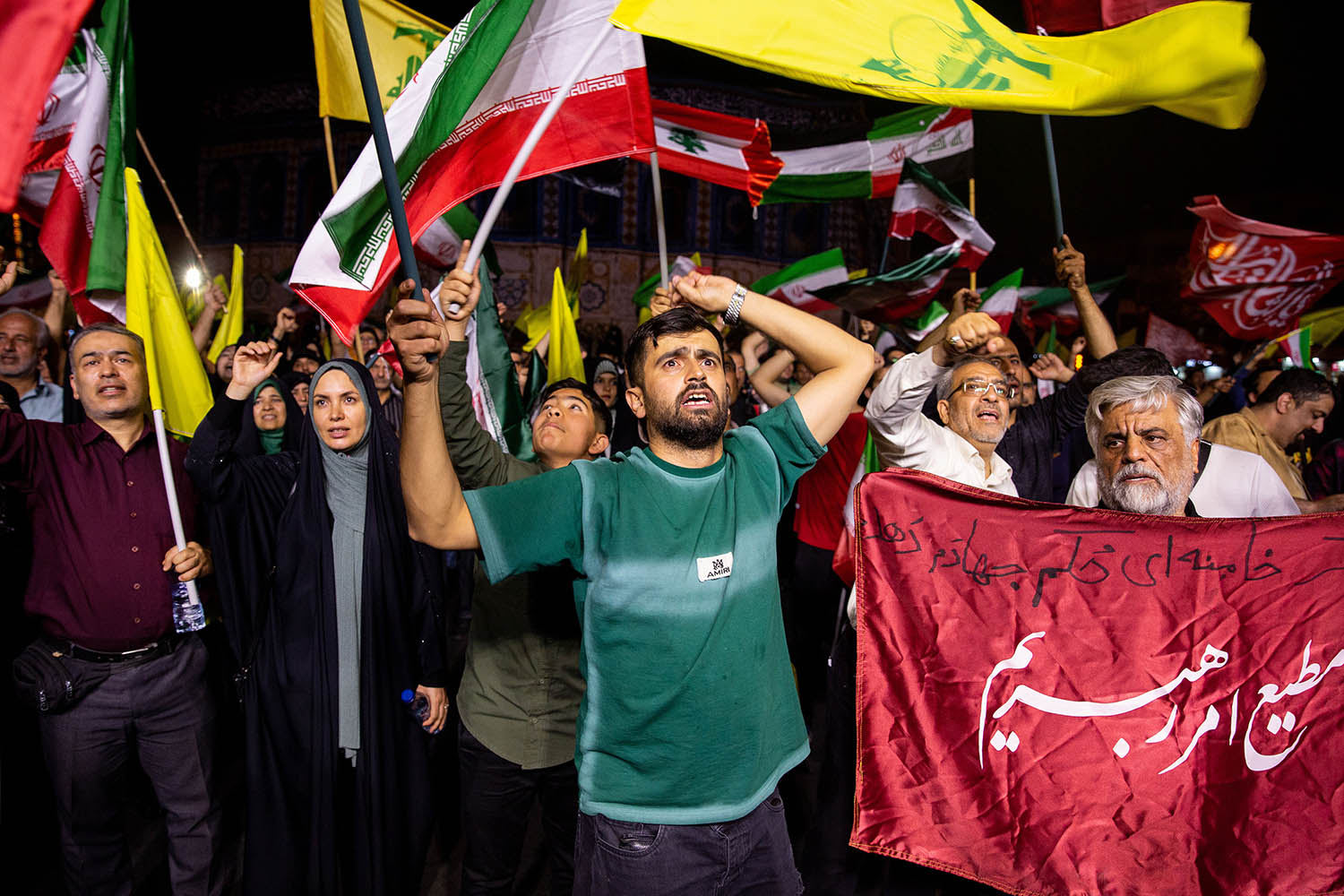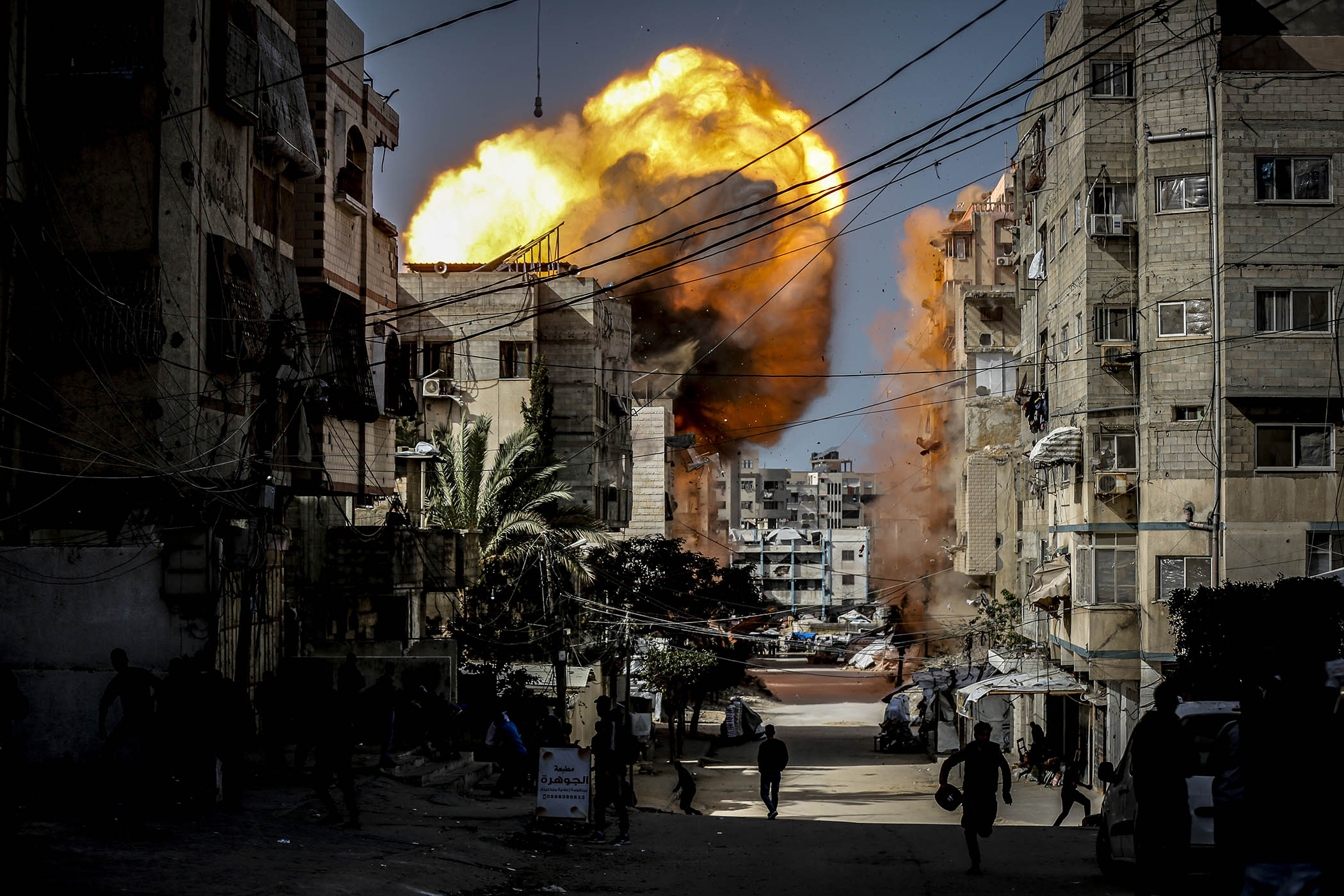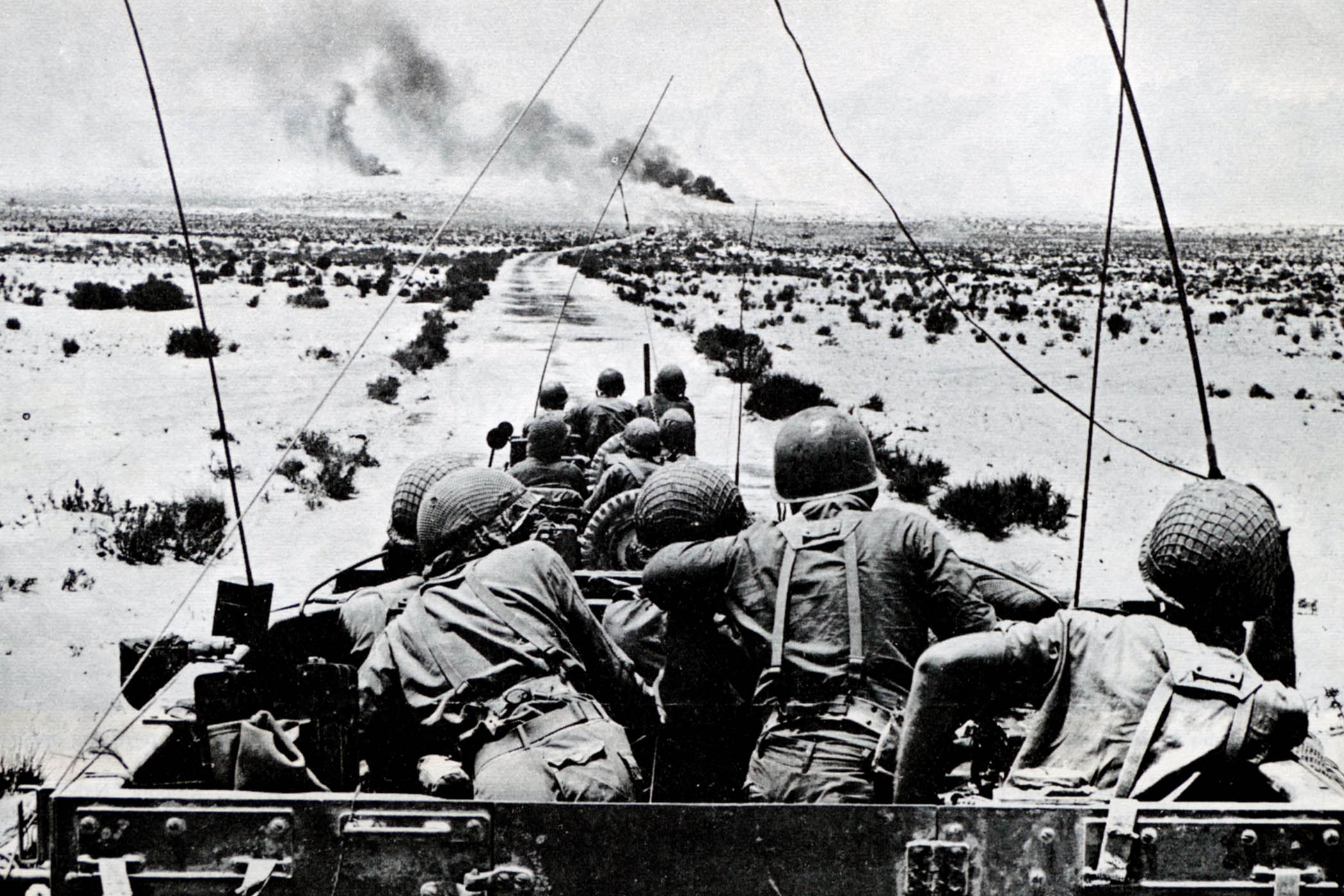Last Thursday night, amid reports of an imminent attack on Iran by Israel, an emergency war meeting led by Brigadier General Amir Ali Hajizadeh, the commander of the Revolutionary Guards’ aerospace unit, was held at a military base in Tehran. Hajizadeh and his senior officials had been told not to congregate in the same location, but they ignored the warning, assuming that any attack would be days off.
They were wrong. The bunker was one of 20 sites across Iran bombed by Israel in just 15 minutes. Other military leaders, including Hossein Salami, commander of the Revolutionary Guards, were killed in their homes. They, too, had been warned to move to safe houses; they, too, ignored the warning. In total, four senior military generals were killed, and two nuclear scientists. Radars and air defences were destroyed, while parts of a nuclear enrichment plant were damaged.
The attacks, which have sparked a new regional war, highlighted the vulnerability of the Iranian regime, the intelligence capabilities of Israel, and the impunity with which Benjamin Netanyahu is willing to operate.
Those three factors are at the heart of the new war and underline just how unpredictable the coming weeks will be. No one outside the Iranian regime itself knows just how vulnerable its supreme leader Ali Khamenei and his government truly are. It’s possible Khamenei himself doesn’t know. A coup, a collapse, an uprising are all on the table.
Israeli intelligence, criticised in the wake of 7 October when it failed to notice Hamas’s war planning, has had far more success in the past year, from the pager attack on Hezbollah to the assassinations of Hamas and Hezbollah leaders in Iran and Lebanon, through to last week’s attacks. Not only did they know where Iran’s nuclear scientists and senior commanders would be – they were also aware of how much progress the country was making with its nuclear programme.
But it is the third factor, impunity, that will most worry other world leaders. Netanyahu believes he is fighting for the very future of the Jewish people, seeking to prevent what he describes as a “nuclear Holocaust”. And while over the past 15 years he was held in check by US presidents who balked at the idea of an attack like this on Iran, he feels no such compunction now.
Keir Starmer and Mohammed bin Salman called for de-escalation on Saturday but Israel showed little sign of listening, its defence minister warning that “Tehran will burn” if Iran continues firing missiles. In turn, Iran warned the US, Britain and France that it would attack their military bases and ships if they helped Israel block Iranian missiles and drones. No 10 last night said it was sending more RAF jets to the region “to support regional security”.
In the wake of the attacks, pressure on Israel to relieve the siege on Gaza has receded, while a planned UN conference to discuss Palestinian statehood has been postponed.
Related articles:
Since Donald Trump first came to power in 2017, there have been fears that the rules-based international order that has been in place since the end of the second world war was coming apart. That feeling intensified in February 2022 when Russia invaded Ukraine, and became even harder to ignore with the return of Trump at the start of this year. But Netanyahu’s attack feels like the moment when it can no longer be denied. We are now living in “a world where strong countries can do what they want”, says Bronwen Maddox, director of Chatham House. “It’s not just that countries start these conflicts, it’s that they don’t stop them. Conflicts just go on and on.”
Not only does that lead to more death and destruction now, it builds up problems for the future. “You have lots of people whose lives are smashed up,” says Maddox. “That sows the seeds of future conflicts, because their lives have been shattered.”
Newsletters
Choose the newsletters you want to receive
View more
For information about how The Observer protects your data, read our Privacy Policy
For Peter Ricketts, the former head of the British Foreign Office and the UK’s first national security adviser, this is a more worrying period than “any time since the cold war. The strongman approach to international affairs from America, Russia and China, combined with the weakness of the UN: we haven’t had that combination before.
“Even in the cold war things were pretty stabilised between the main powers. Now all the old guardrails have fallen away. The state of the Middle East is now completely out of any international control.”
‘Now all the old guardrails have fallen away. The state of the Middle East is now completely out of any international control’
‘Now all the old guardrails have fallen away. The state of the Middle East is now completely out of any international control’
Peter Ricketts, former head of the Foreign Office
There is a tendency when talking about the end of the post-cold war era to romanticise American power and western morality. That would be to ignore its failure to intervene in Rwanda and prevent a genocide, the US-UK decision to invade and occupy Iraq based on faulty intelligence and blind ideology, and its catastrophic handling of Syria.
But the wielding of economic and diplomatic power in Israel and Iran clearly had an impact. Not only did the US hold back Netanyahu, but Iran was willing to agree to a deal that would have allowed it to develop a civilian nuclear programme but prevented it from developing a weapon. It was imperfect, it was messy, it was often compromised – but it worked.
Ricketts believes the attacks will ultimately reinforce Iran’s determination to get a nuclear weapon. “In the short term it sets back the programme considerably, but long term they will redouble their efforts. Israel can’t take the knowledge out of the heads of Iranian engineers.”
For Maddox, Trump’s original decision to scrap the Obama-era nuclear deal with Iran – at Netanyahu’s urging – has led to the precise scenario they both claimed to be trying to avoid. “Trump and Netanyahu have brought about the circumstances that have let Iran get to the brink of getting a nuclear weapon. This was avoidable.”
Frightening as the situation in the Middle East is, the consequences of the past days will be felt elsewhere in the world as well. Russia has already made clear that international borders do not matter, and Nato nations on its borders – Estonia, Latvia, Lithuania – have little confidence that the alliance will come to their aid if Russia sends troops there. China may not try to take Taiwan by force, says Maddox, but “it can make Taiwan’s life very difficult” without much threat of a pushback from Trump.
“Countries are taking matters into their own hands, ” says Ivo Daalder, former foreign policy advisor to Bill Clinton and Barack Obama. “North Korea may decide this is a good time to take a chunk of South Korea. It isn’t clear at all to me that the United States would get involved.”
Over the next 24 hours planes carrying the leaders of the free world will land in Alberta for the 51st meeting of the G7. A gathering of the west’s biggest powers just days after the outbreak of a potentially catastrophic war in the Middle East should be a sign of that the global rules-based order – however imperfect – can still pull together and act as a brake on reckless military activity in a volatile region. But we’re in a new world now. The leaders will talk, and they may issue a communique calling for calm. But nothing that is said in Alberta is likely to prevent Israel and Iran from escalating the conflict.
Everywhere you look, Ricketts says, “stronger powers are trying to dominate weaker neighbours. We’re in this ‘anything goes’ world now”.
Photograph by Arash Khamooshi/Polaris



